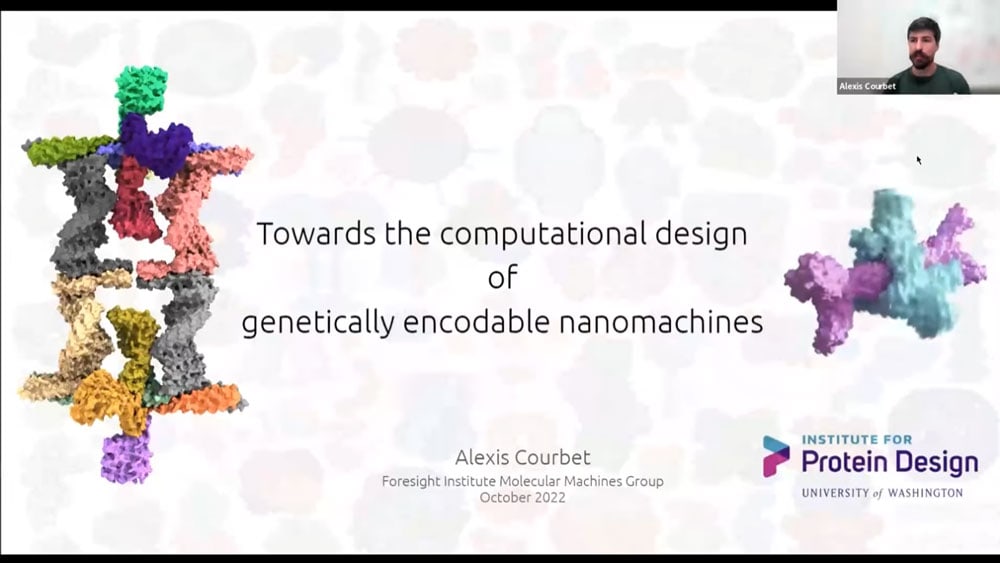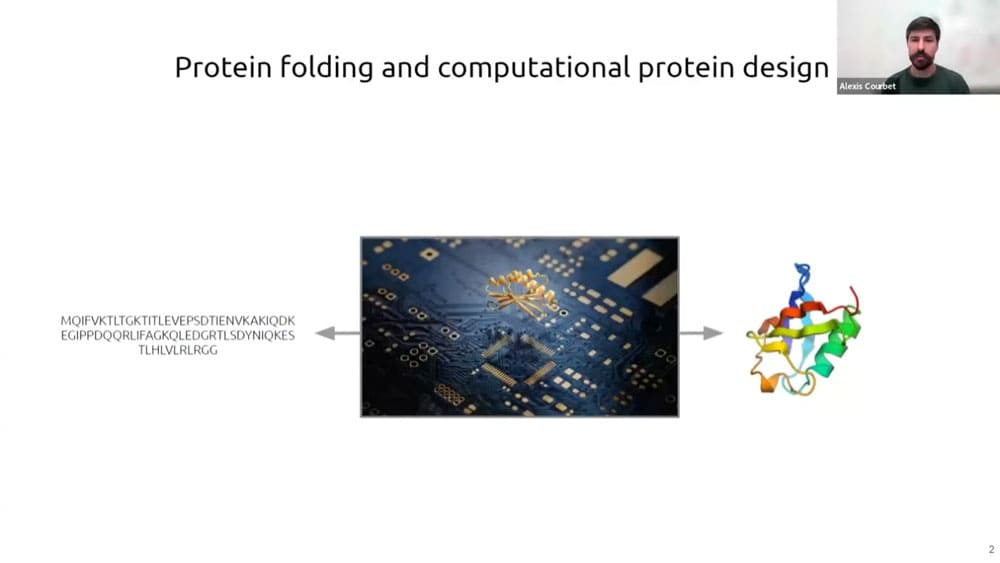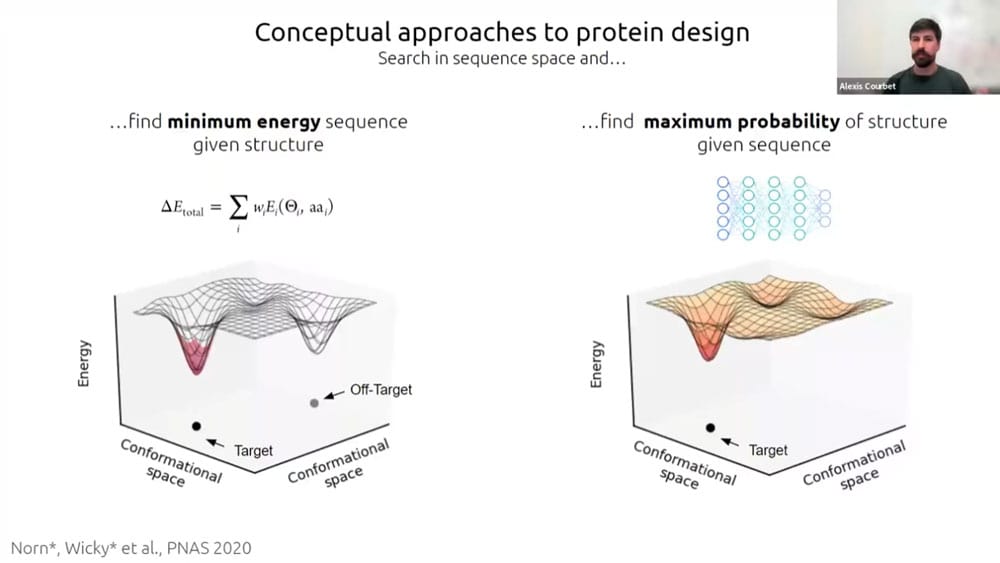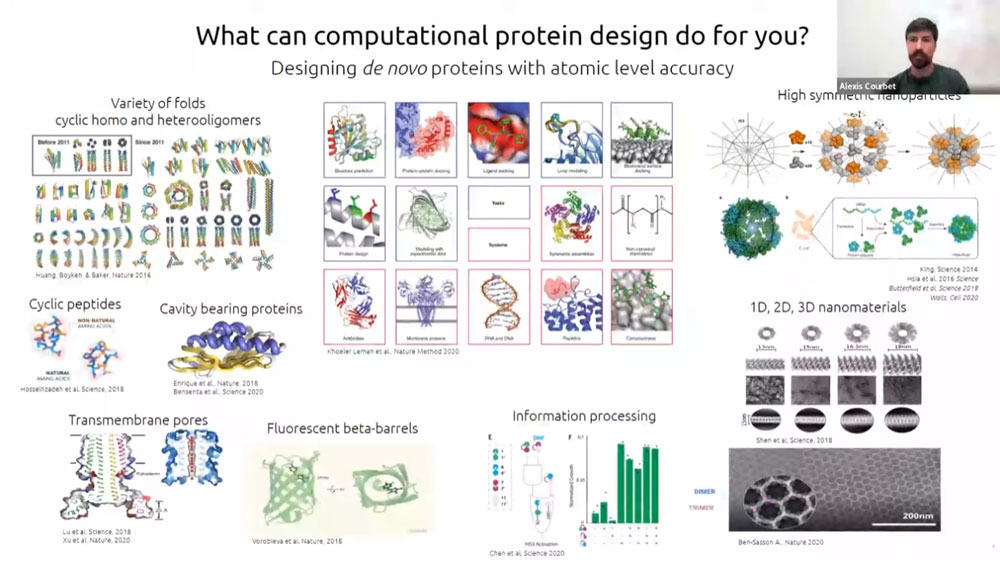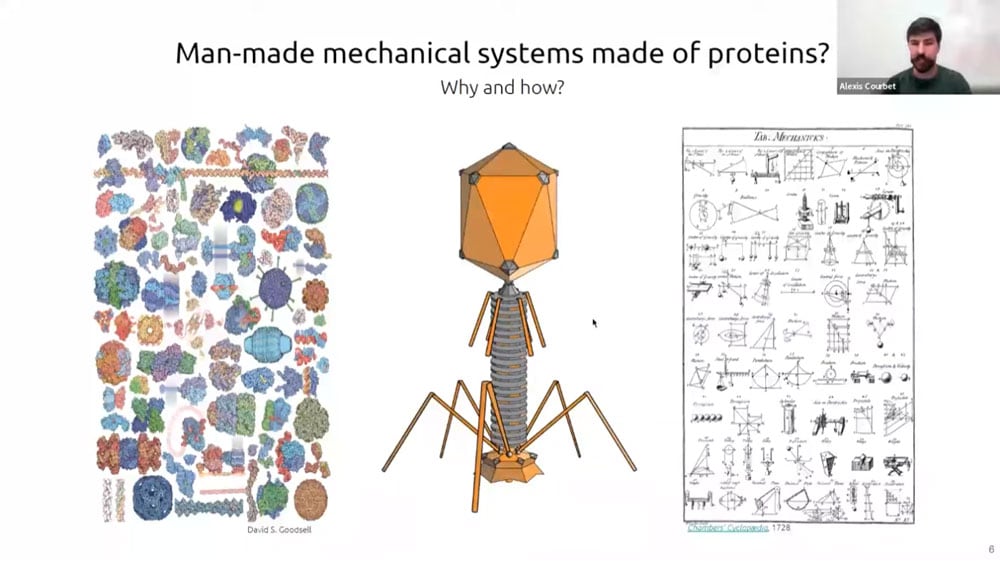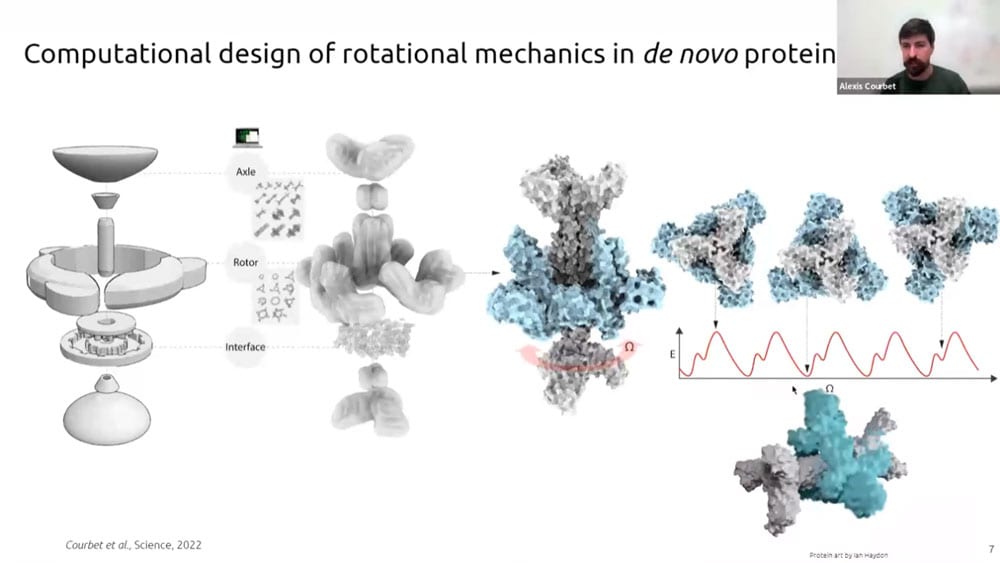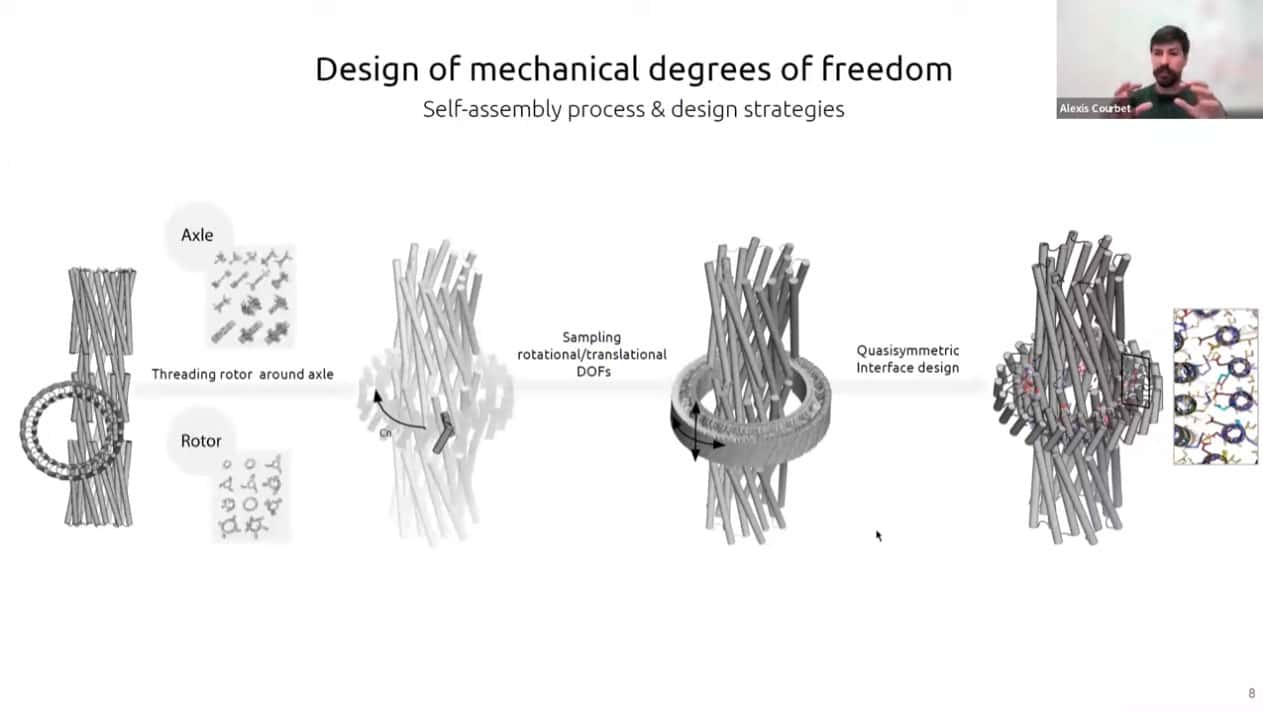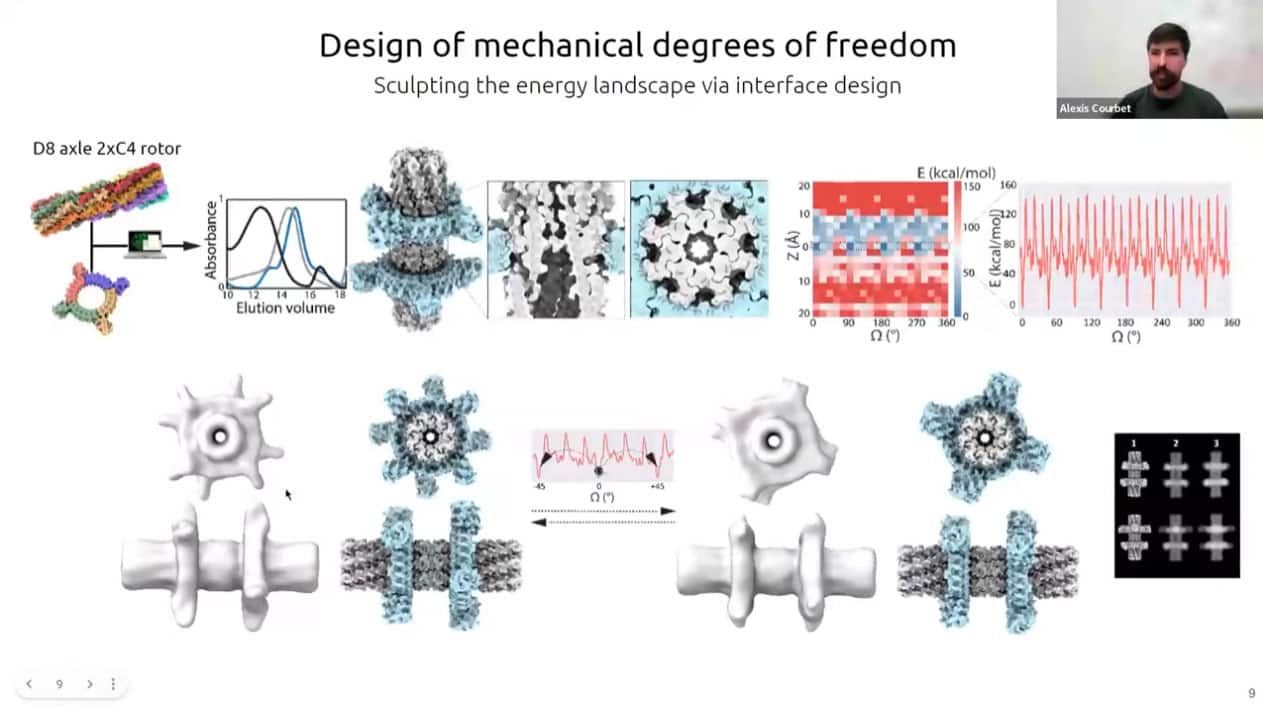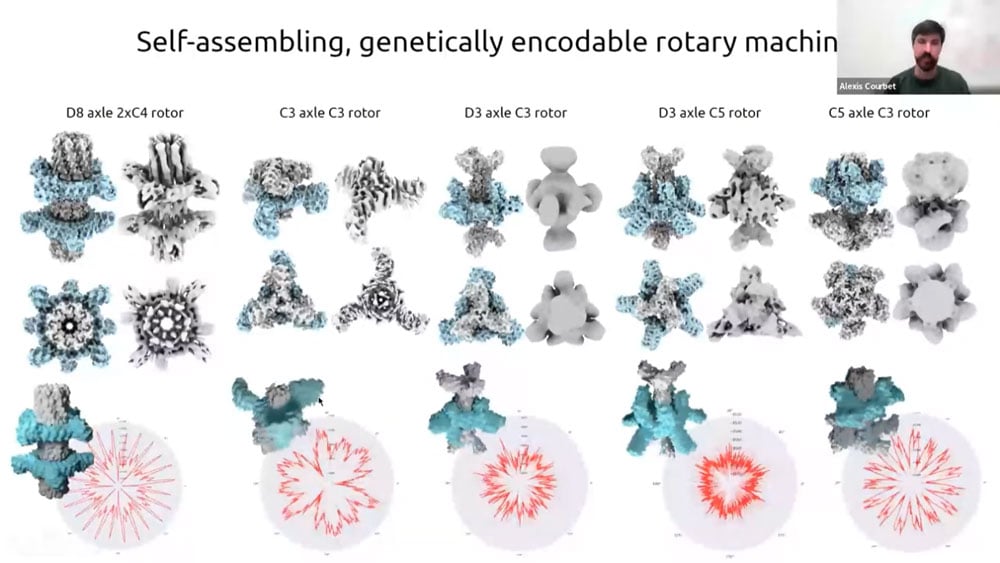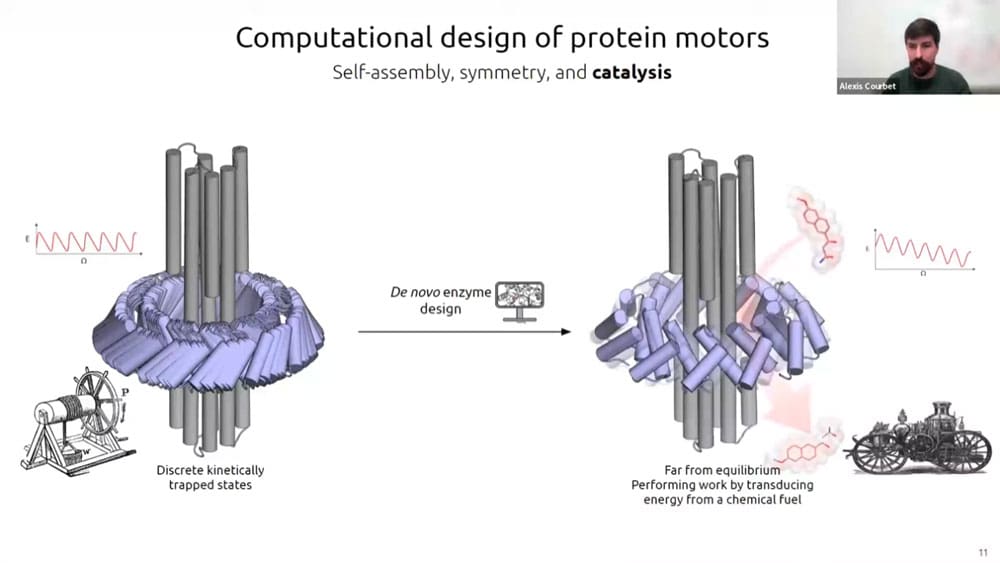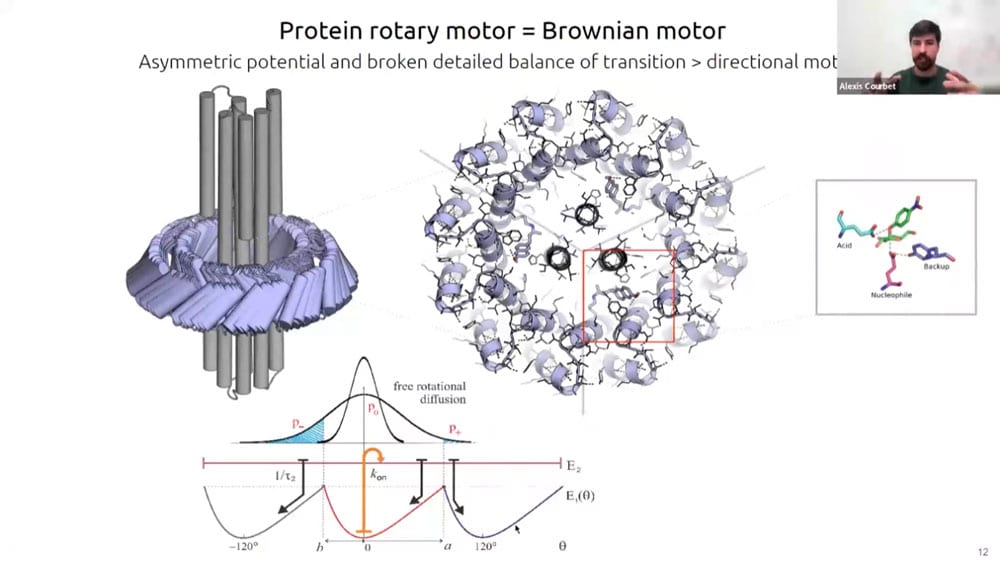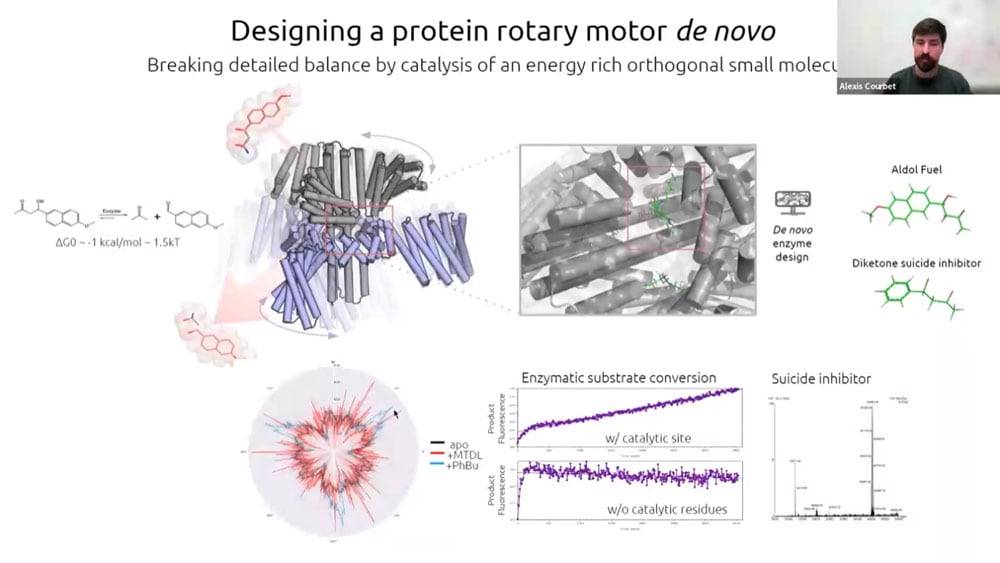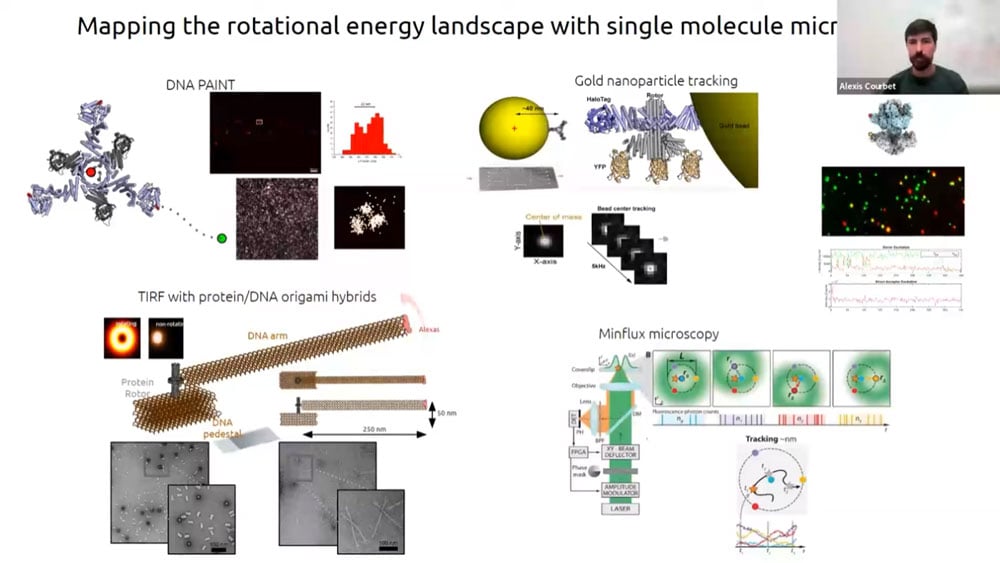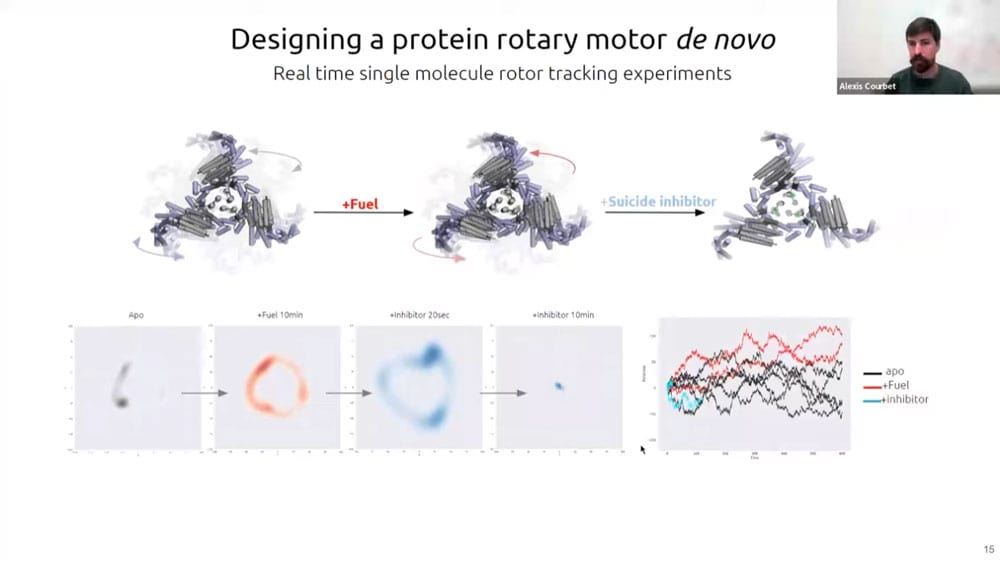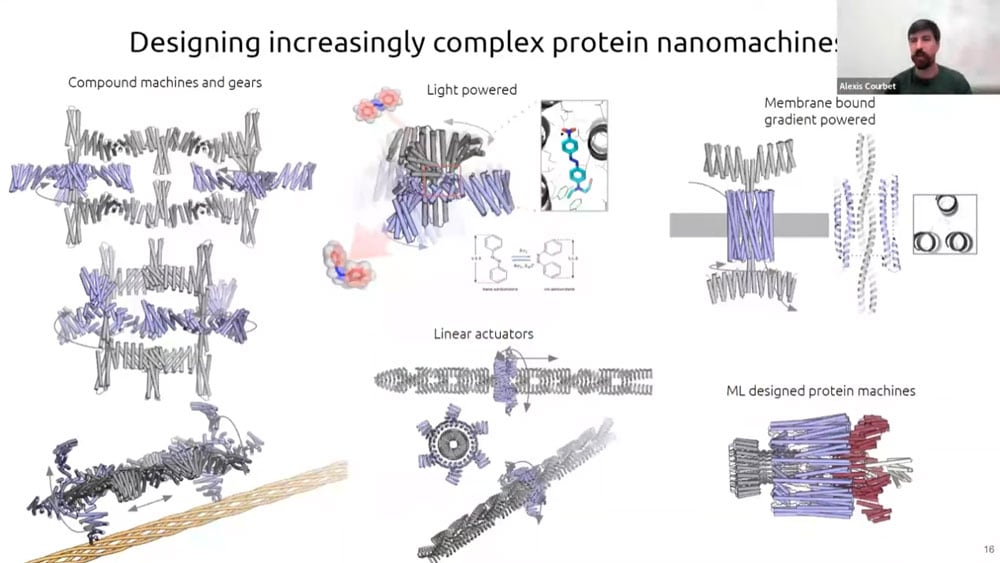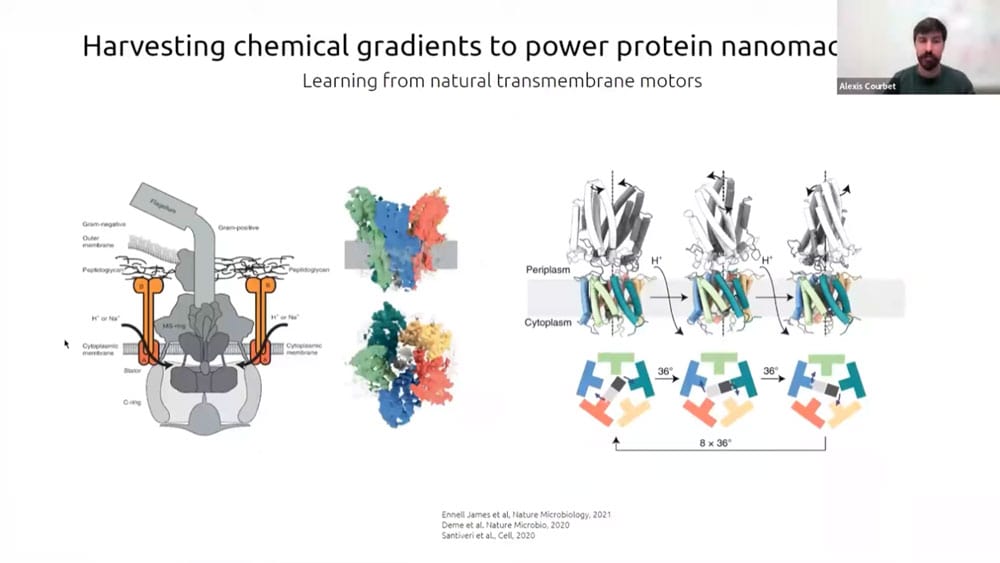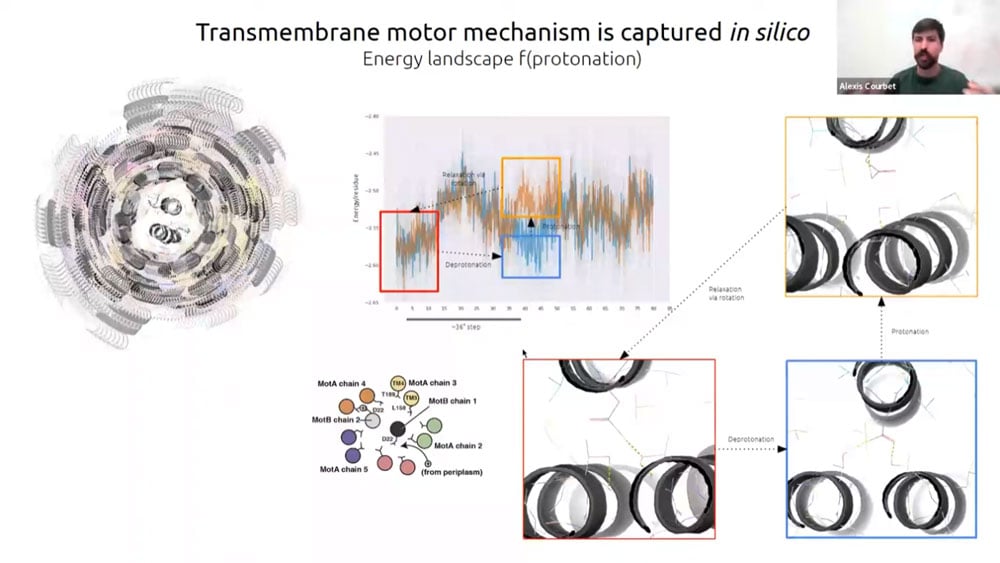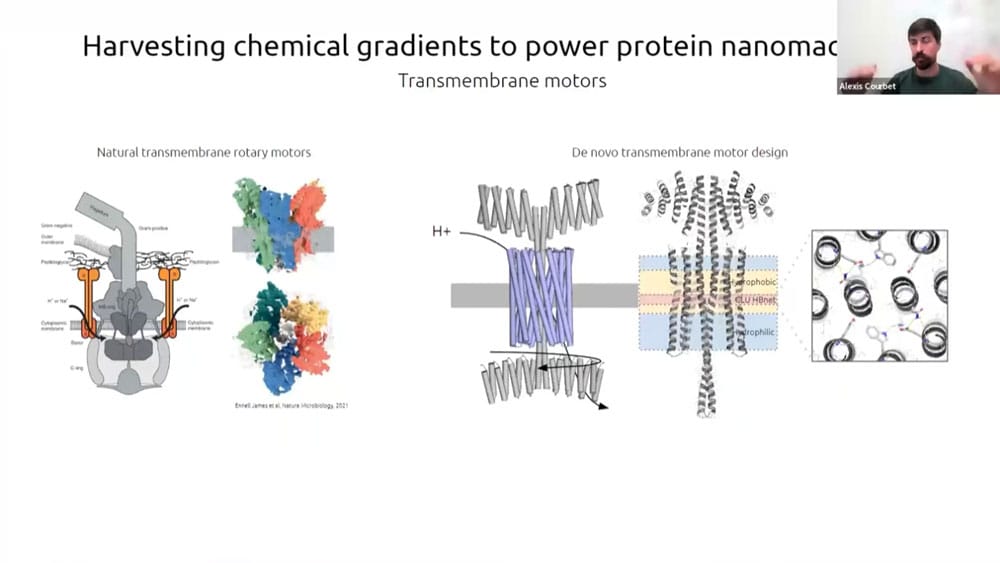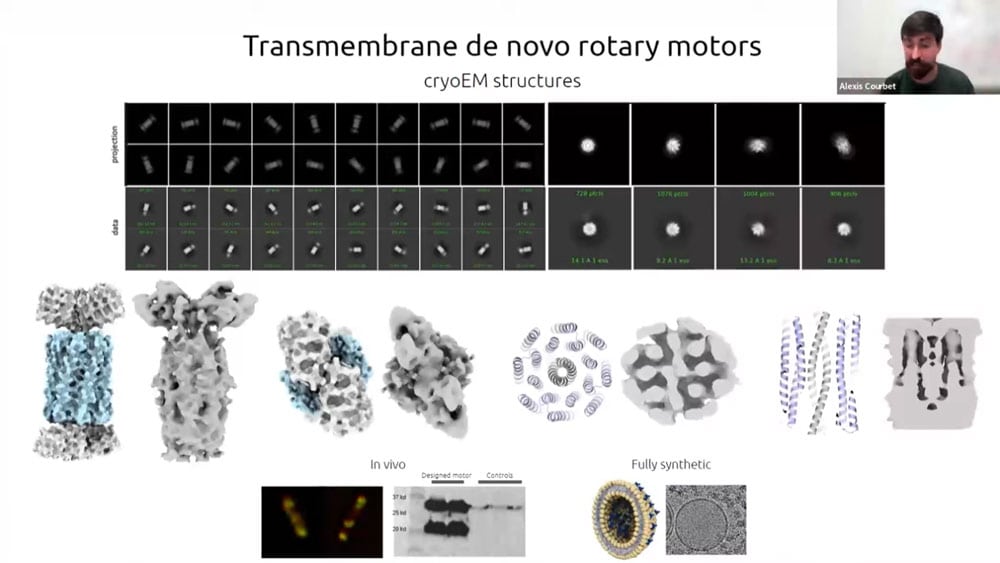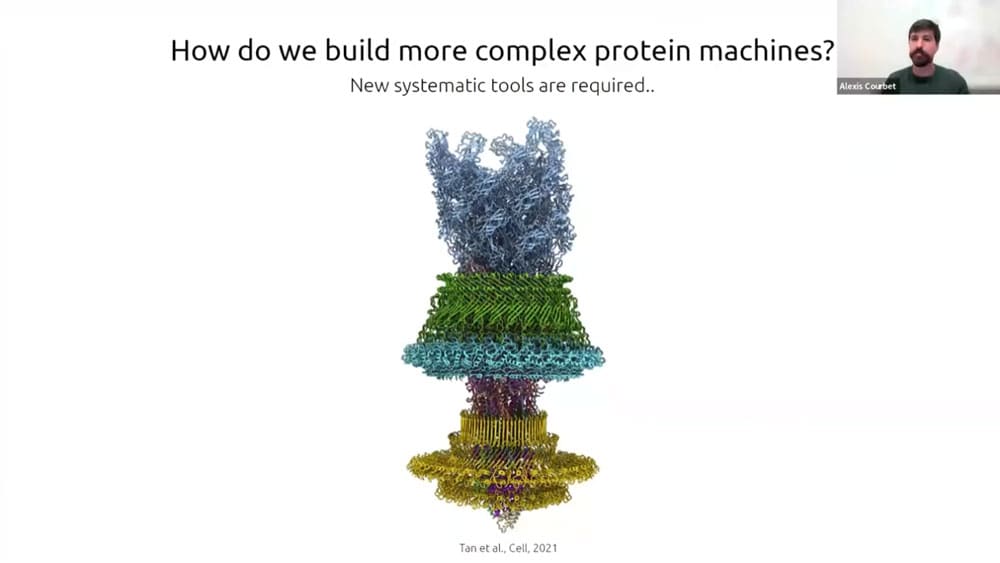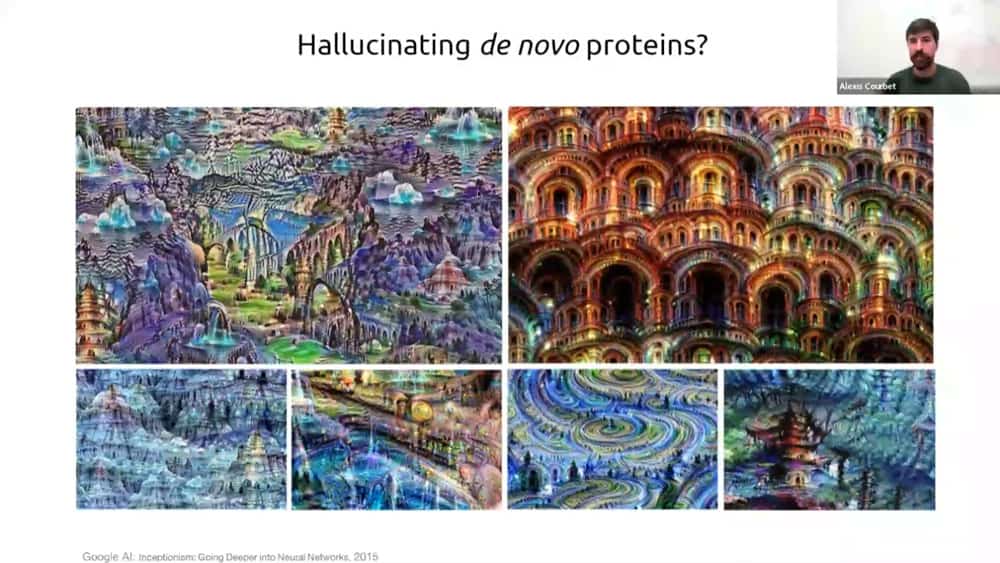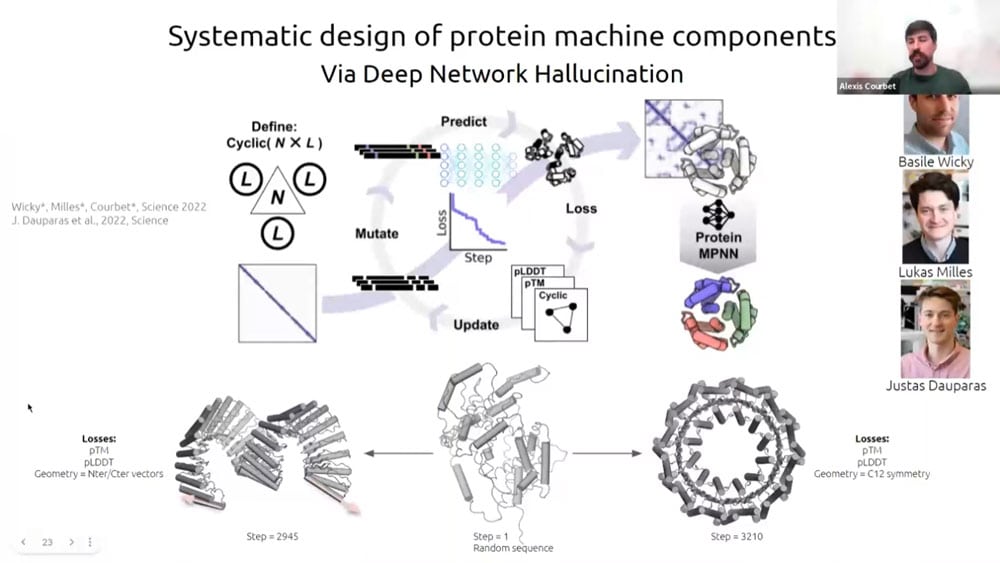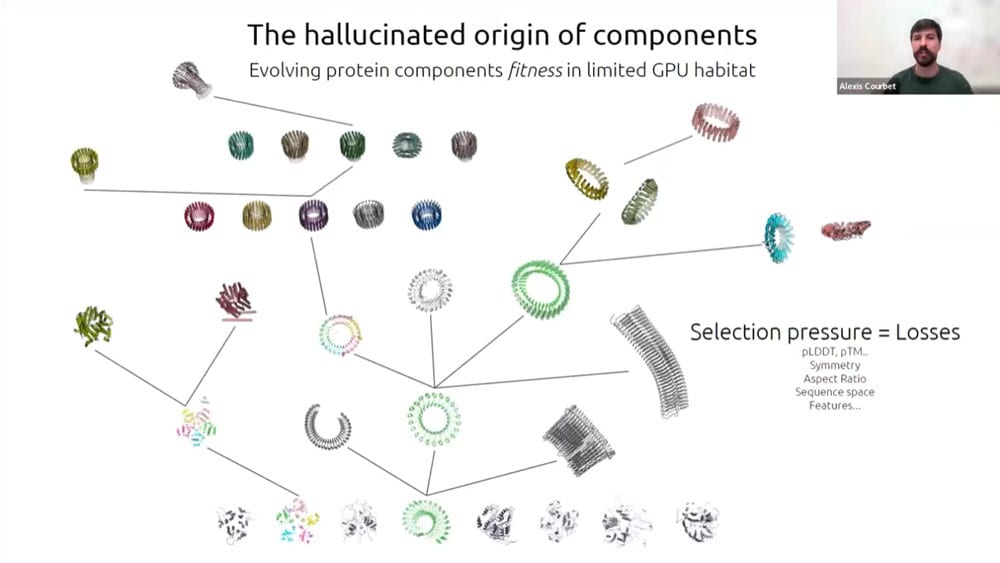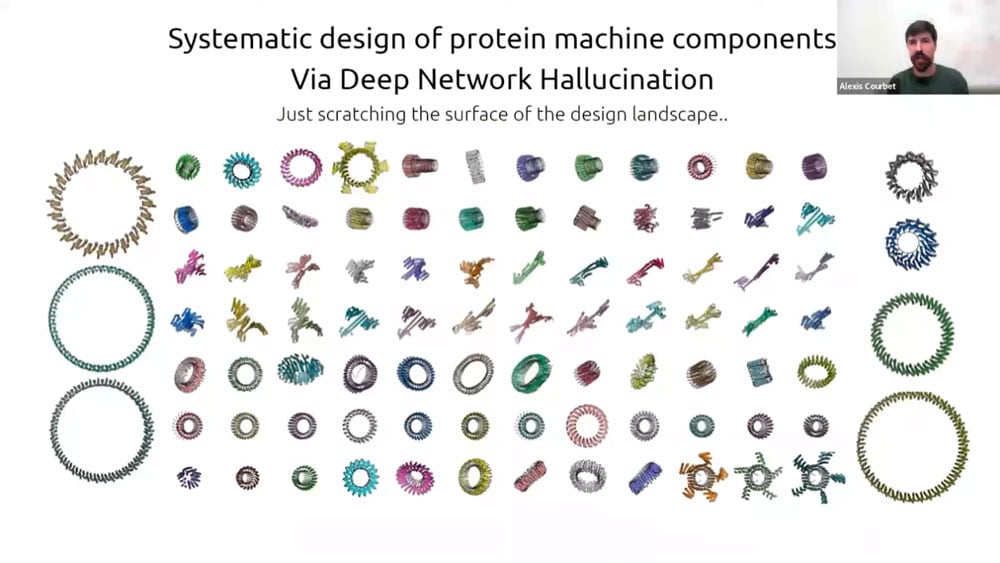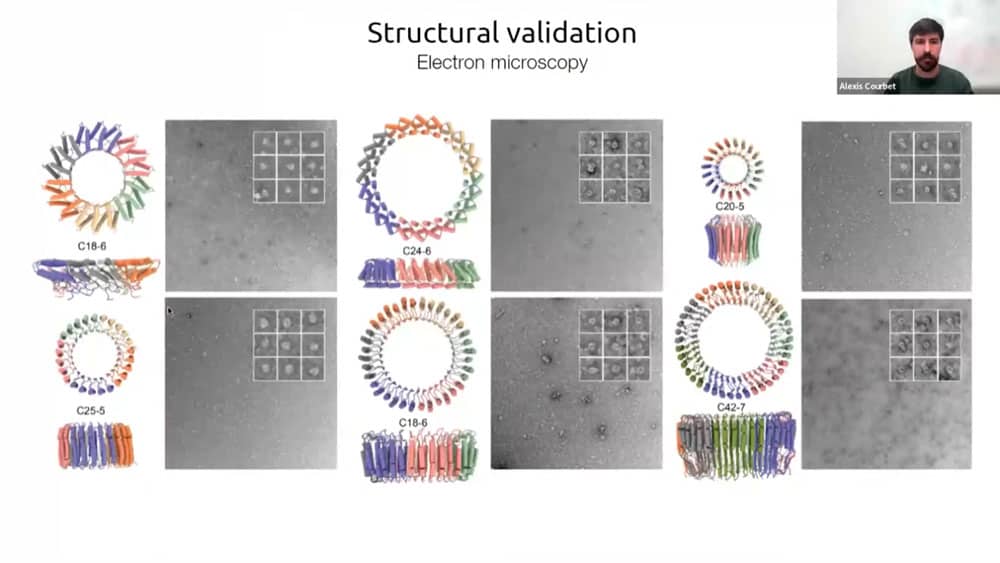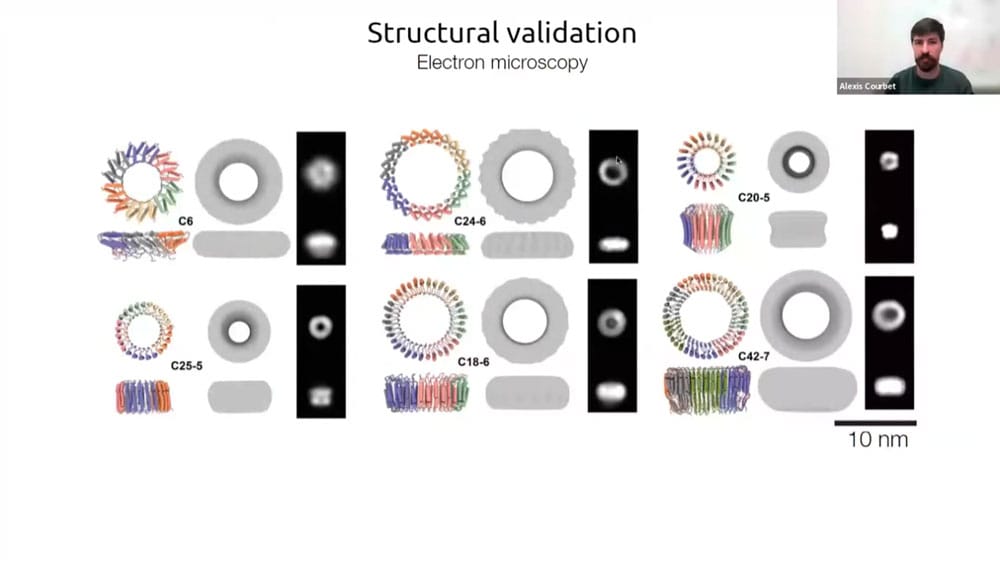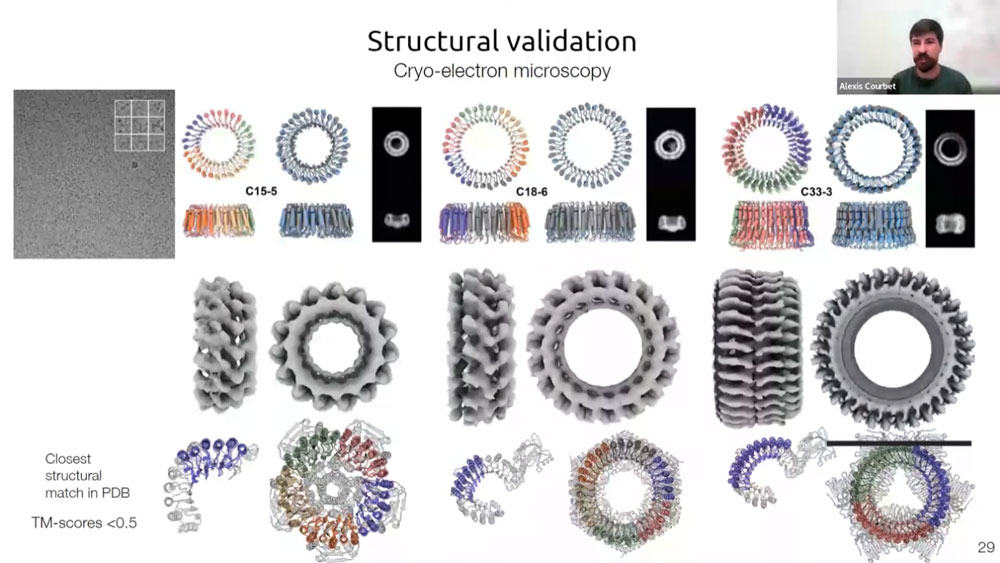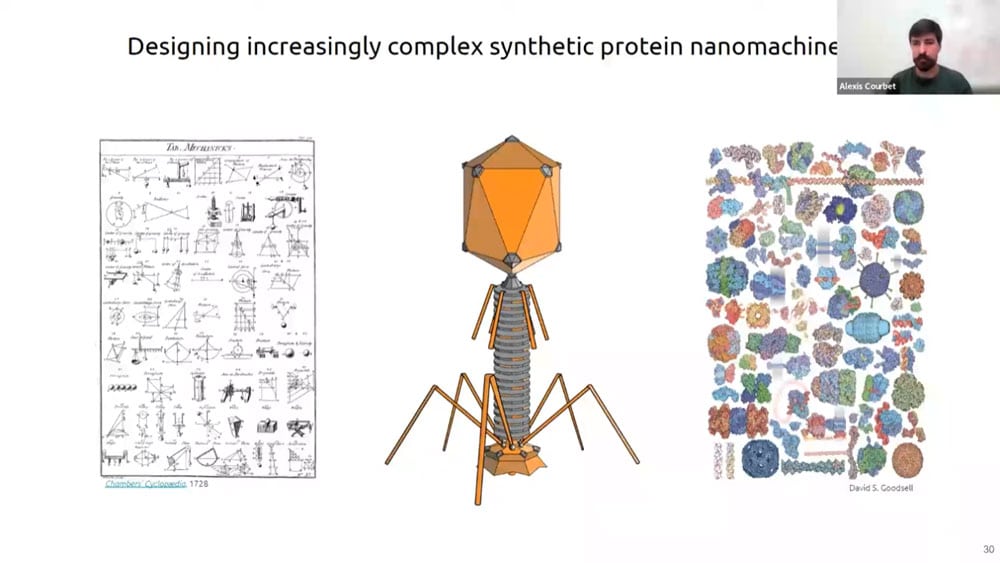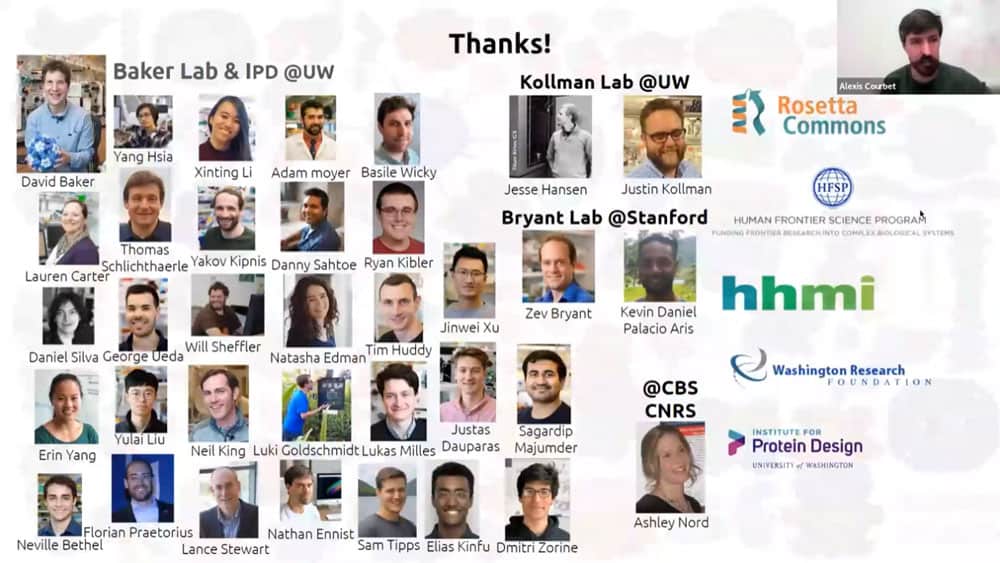Presenter

Alexis Courbet
Alexis Courbet, PhD., PharmD., is an HHMI research associate at the institute for protein design (IPD), at the University of Washington’s School of Medicine. Dr. Courbet joined the IPD in 2016 to investigate computational approaches....
Alexis’s research proposes to investigate computational design rules to rationally install biochemical energy driven dynamic and mechanical behavior within de novo protein nanostructures, by tailoring the energy landscape to capture favorable thermal fluctuations allowing to perform work (i.e. rationally designing a Brownian ratchet mechanism using energy from the catalysis of a biologically orthogonal small molecule to break symmetry). As a proof of concept, he is focusing on the de novo design of protein rotary motors, in which symmetric energy minima along an interface between multiple components couples rotation to a catalytic event, thereby converting the biochemical energy of a fuel molecule into work.
Summary:
There has recently been a surge of progress with computational protein folding. Alexis is working on designing atomically precise machines using proteins as structural and mechanical elements. One of the first designs is an axel and rotor assembly. He started by designing the components separately, then computing the interface between components. He then simulated the motion and degrees of freedom to calculate whether the machine would perform the intended function.
A small library of computationally designed machines have been created so far using this method. The designs so far have mostly been rotors – designing motors that can generate torque is the next challenge. He wants to use Brownian motion to create a sort of ratchet, a rotor that preferentially diffuses in one direction via catalysis. Mapping out energy landscapes, computing surface topology, and discovering catalytic elements are just a few parts of the interesting process of protein design.
Lessons can be learned from the already existing examples of protein motors – one such example is the flagellum, which uses membrane potentials to drive rotational motion. These transmembrane motors represent one of the more accessible possibilities for a useful application of molecular machines. Examples from nature are useful, but AI may open up other avenues of design as well. Protein ‘hallucination’ may produce designs of protein-based machines that nature has simply never considered.
Challenge:
Developing more smart algorithms to empower protein design
